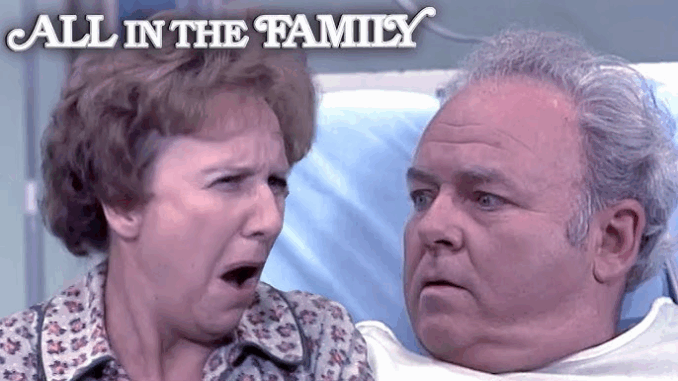
When All in the Family premiered in 1971, it did more than break television taboos—it rewrote the cultural script. Bold and brash, with laughter laced in uncomfortable truths, the show wasn’t just a sitcom—it was a weekly national conversation.
In a time of political upheaval, racial tensions, and generational shifts, All in the Family dared to say what others wouldn’t. While most sitcoms of the era stuck to lighthearted family dynamics, Norman Lear’s creation dove headfirst into the cultural fire. With storylines about racism, feminism, war, and sexuality, the show held nothing back. And America tuned in.
The Power of Provocation
Archie Bunker wasn’t a hero. He was deeply flawed—racist, sexist, stubborn. But through Carroll O’Connor’s brilliant performance, he became a symbol of the older generation struggling to keep pace with change. Across from him stood Mike, “Meathead,” his liberal son-in-law who challenged every one of Archie’s outdated beliefs.
Week after week, the living room became a battlefield of ideals—and viewers couldn’t look away. But that’s what made All in the Family revolutionary. It didn’t preach; it provoked. And in doing so, it encouraged Americans to confront their own biases.
Redefining What TV Could Do
Before All in the Family, television avoided controversy. Now, it embraced it. The show’s massive ratings success opened the door for socially conscious programming—leading to spin-offs like Maude, The Jeffersons, and Good Times, each tackling different aspects of American life.
The show also changed what audiences expected from TV characters. No longer did characters need to be perfect or universally likable. They could be complex, conflicted, and real. That legacy can be seen today in shows like The Sopranos, Breaking Bad, and The Office, where flawed characters are the norm—not the exception.
Legacy Beyond the Screen
Beyond ratings and awards, All in the Family left an imprint on the national psyche. It proved that television, often dismissed as lowbrow entertainment, could actually spark introspection and change. It showed that laughter and social critique weren’t mutually exclusive, but powerful allies.
Decades later, when the original set was resurrected for a live tribute in 2019, featuring Woody Harrelson and Marisa Tomei, audiences once again saw the enduring relevance of its dialogue. The issues it tackled—immigration, economic inequality, political division—remain as timely as ever.
